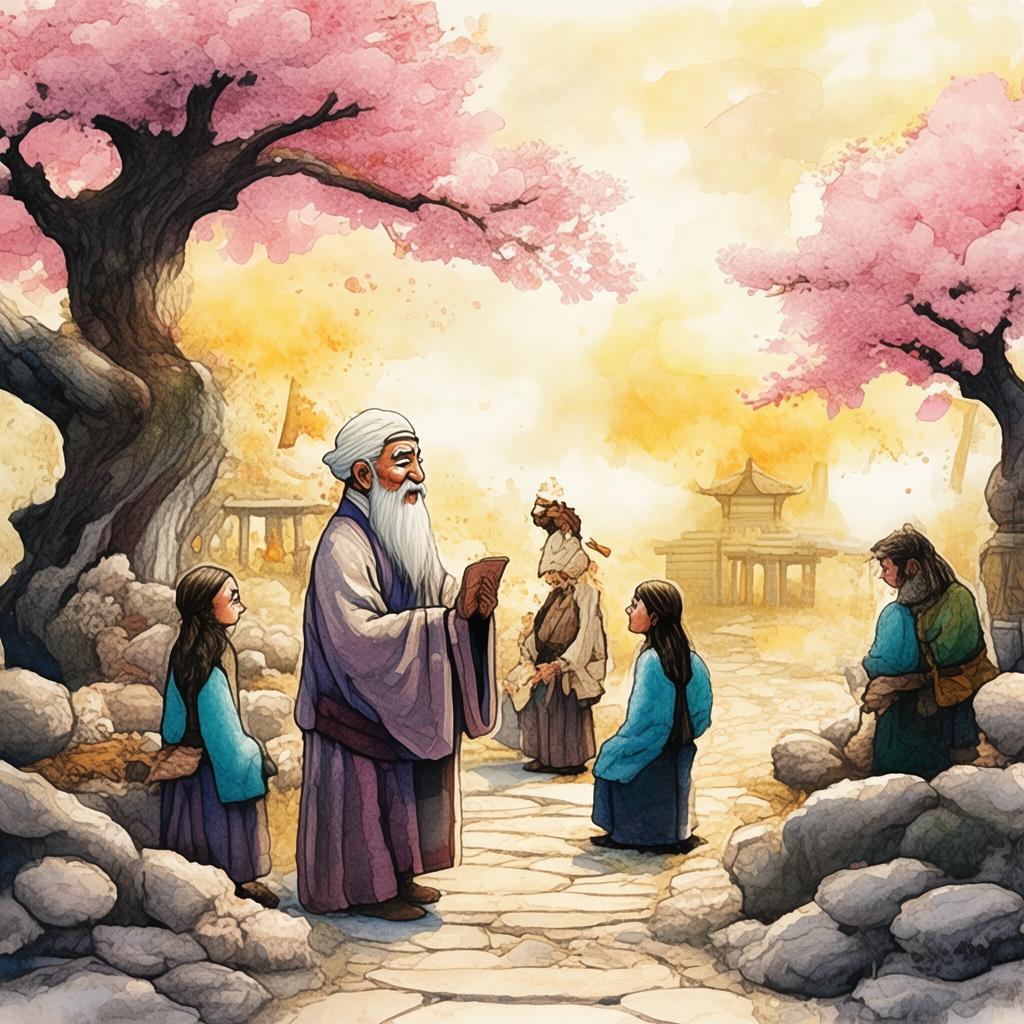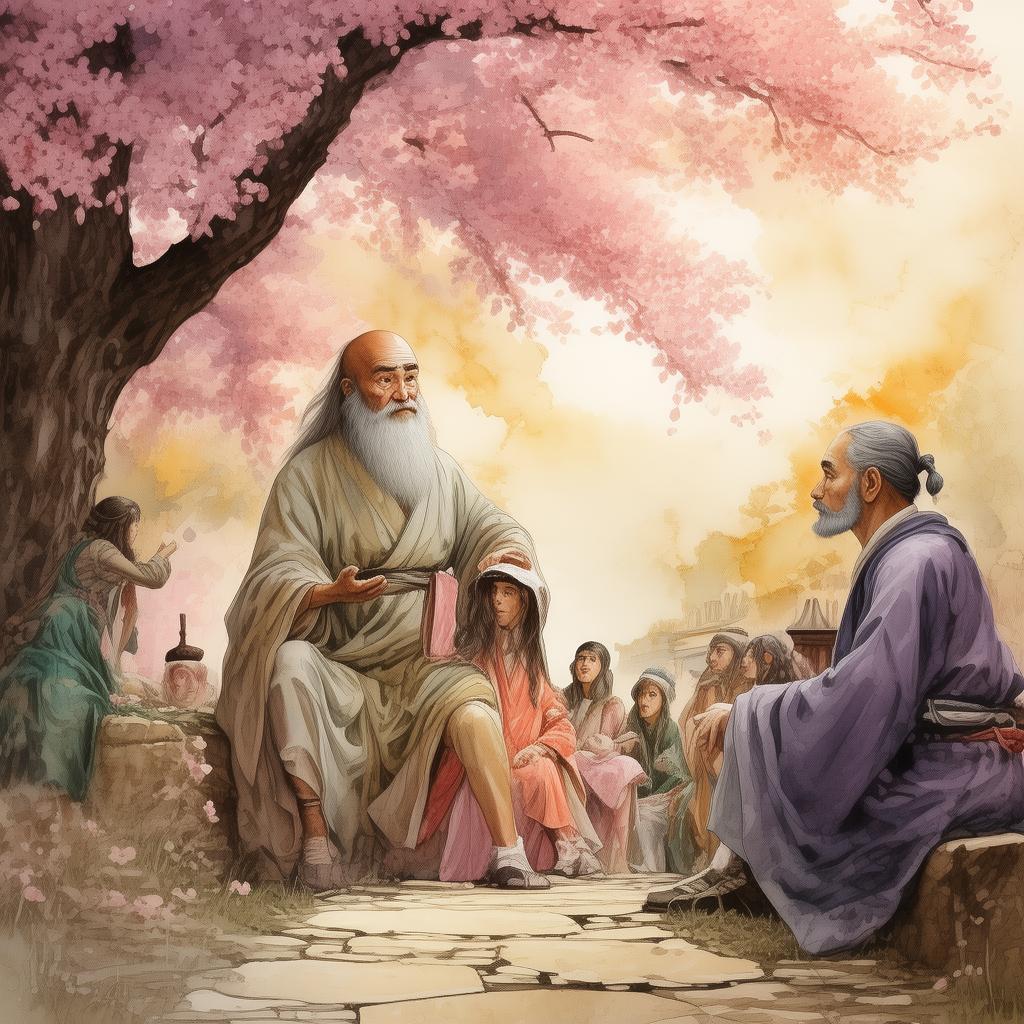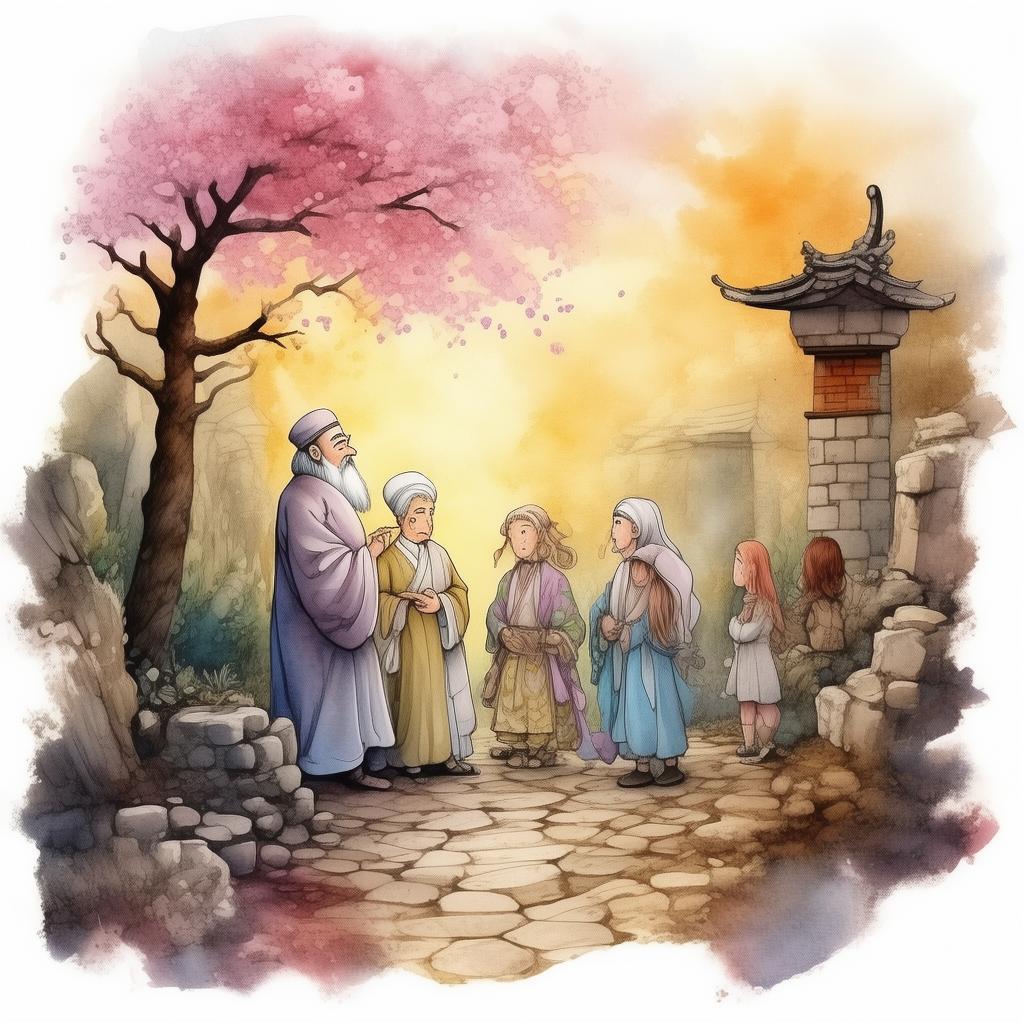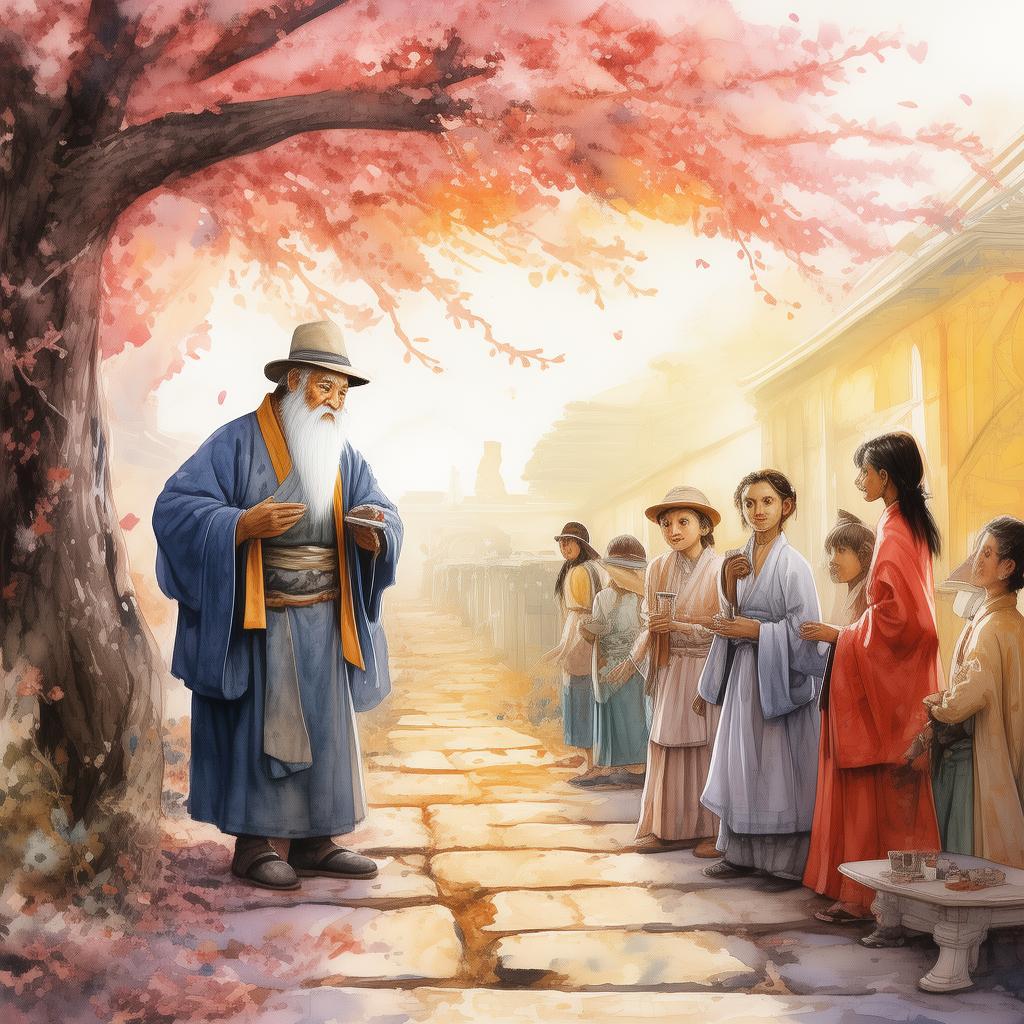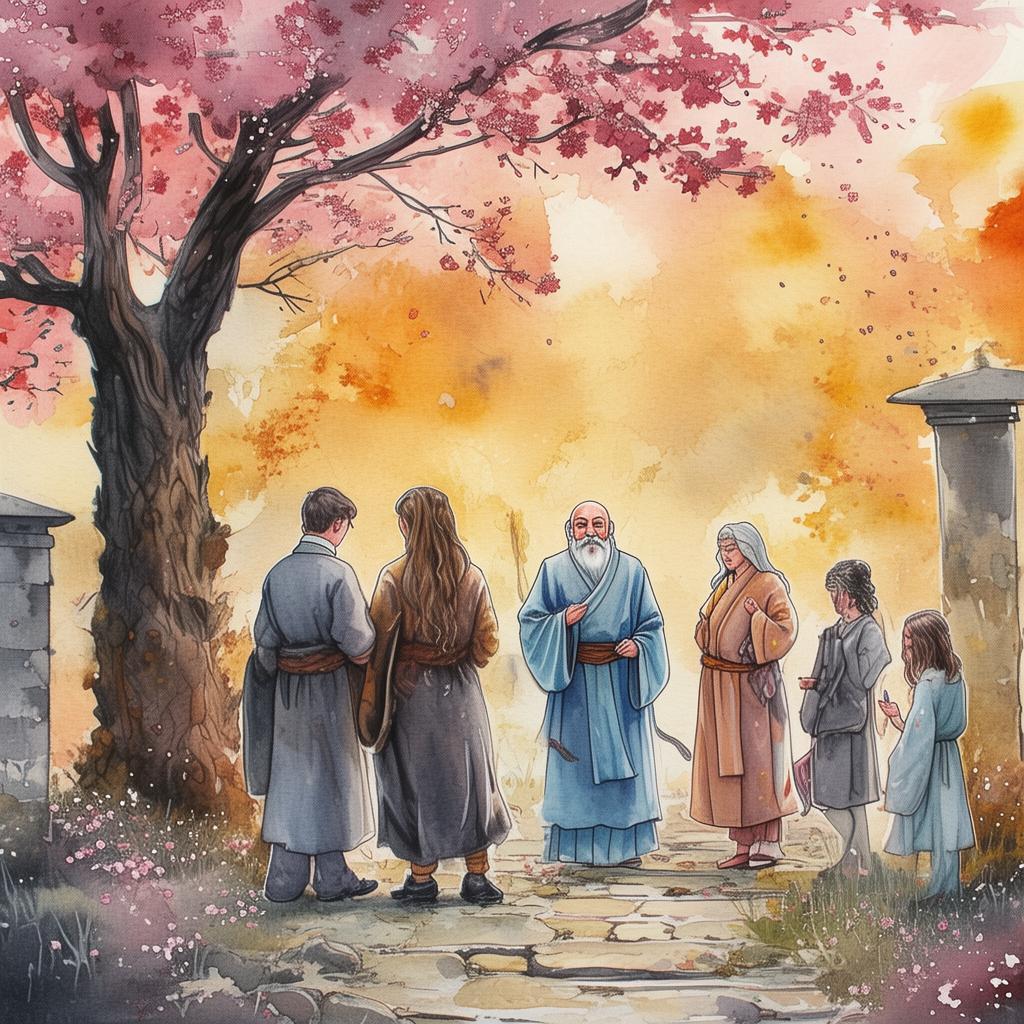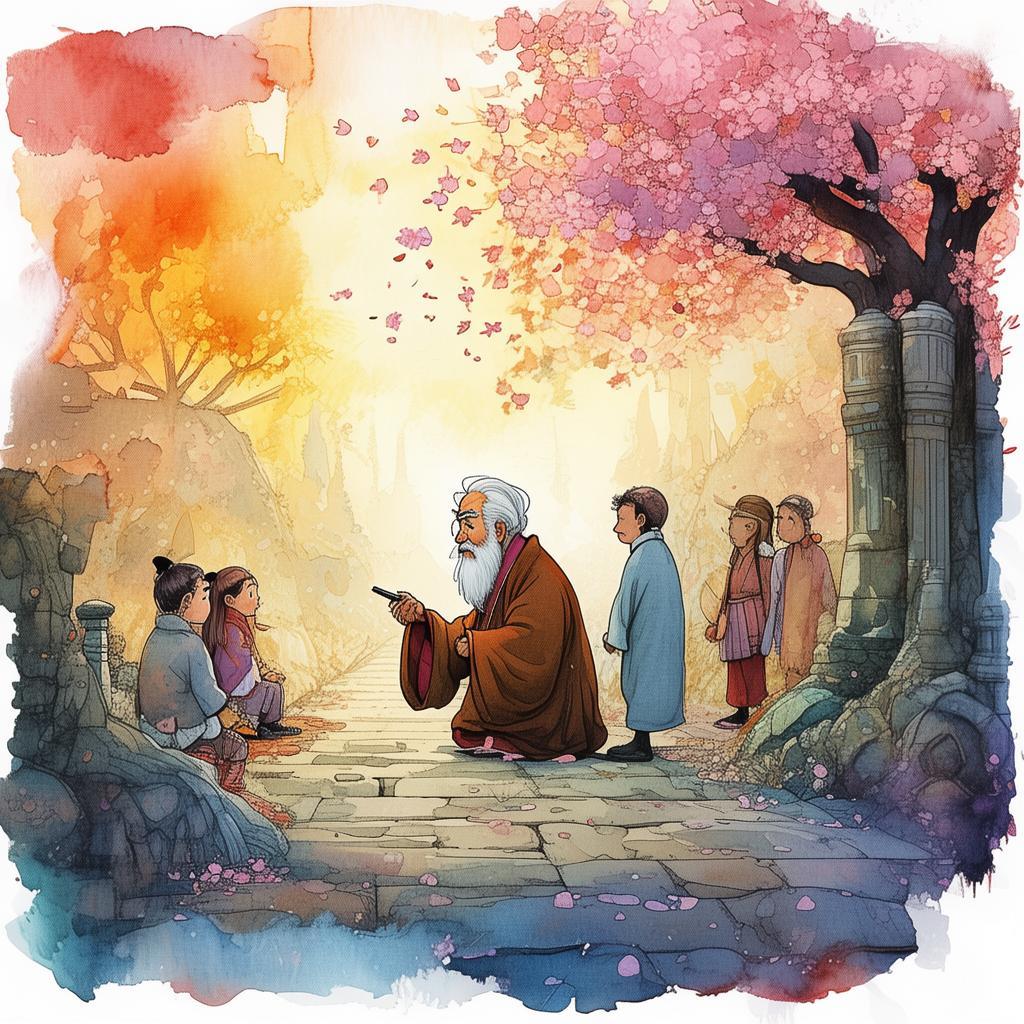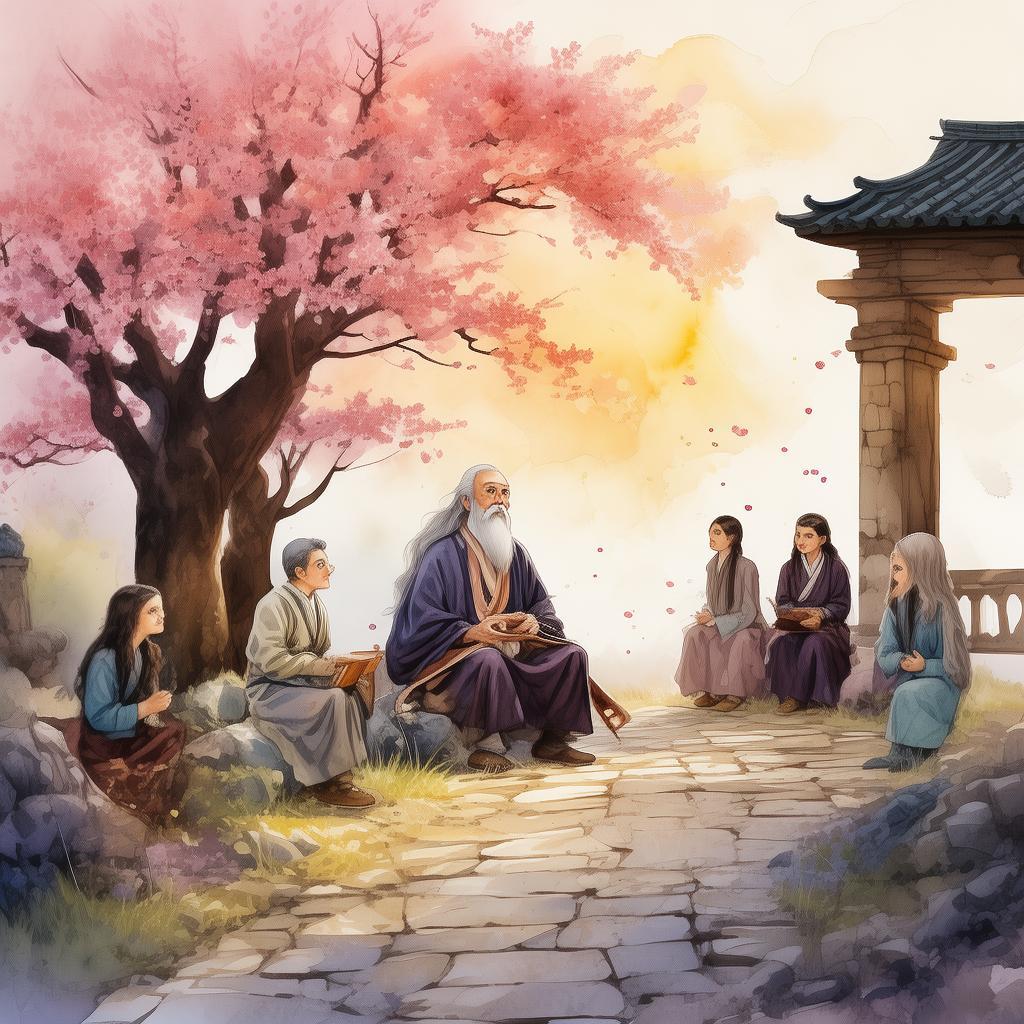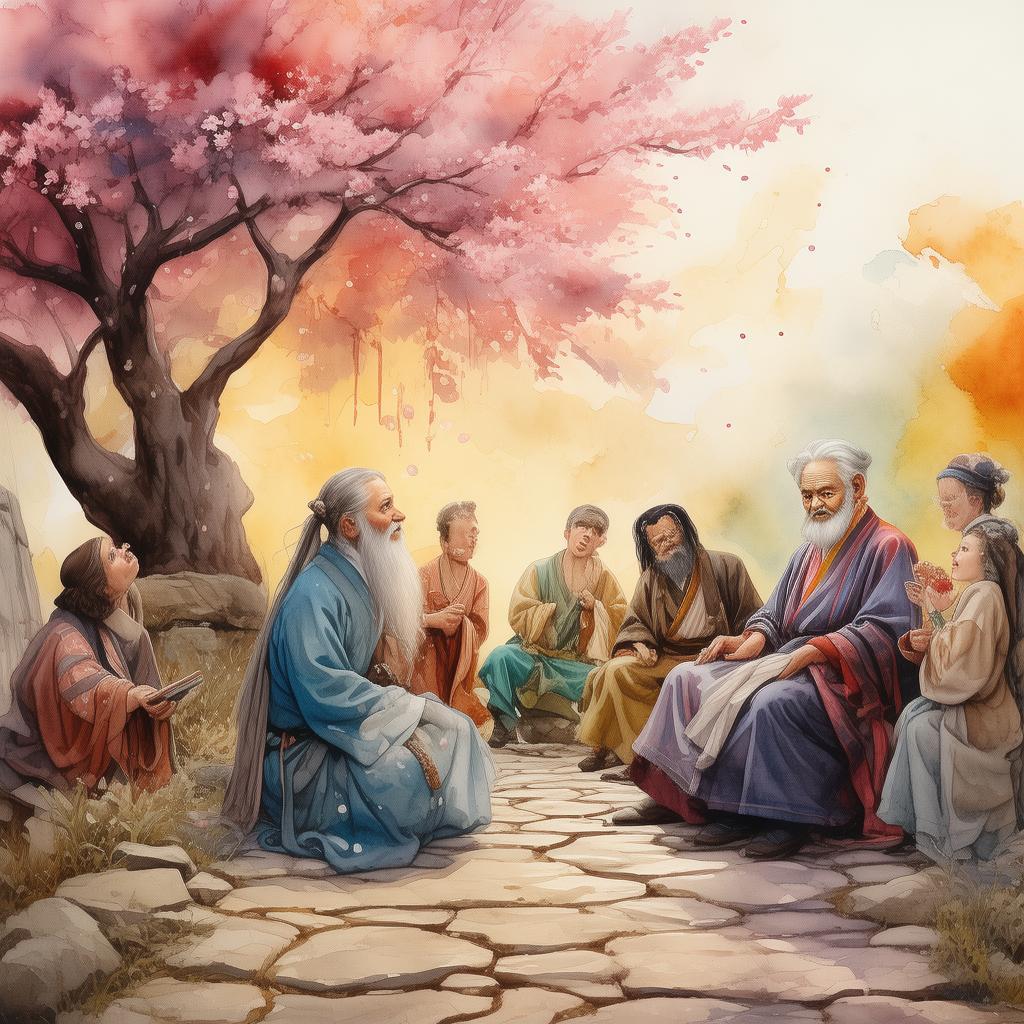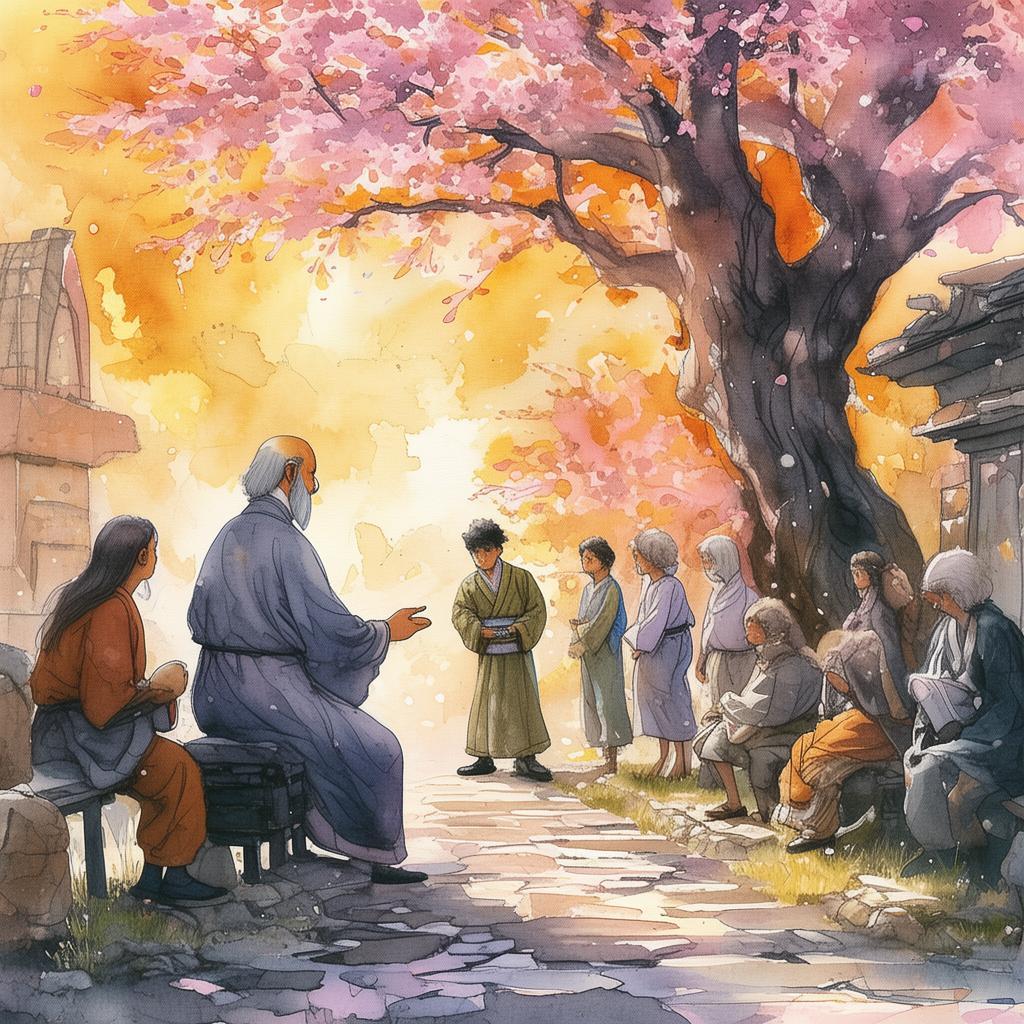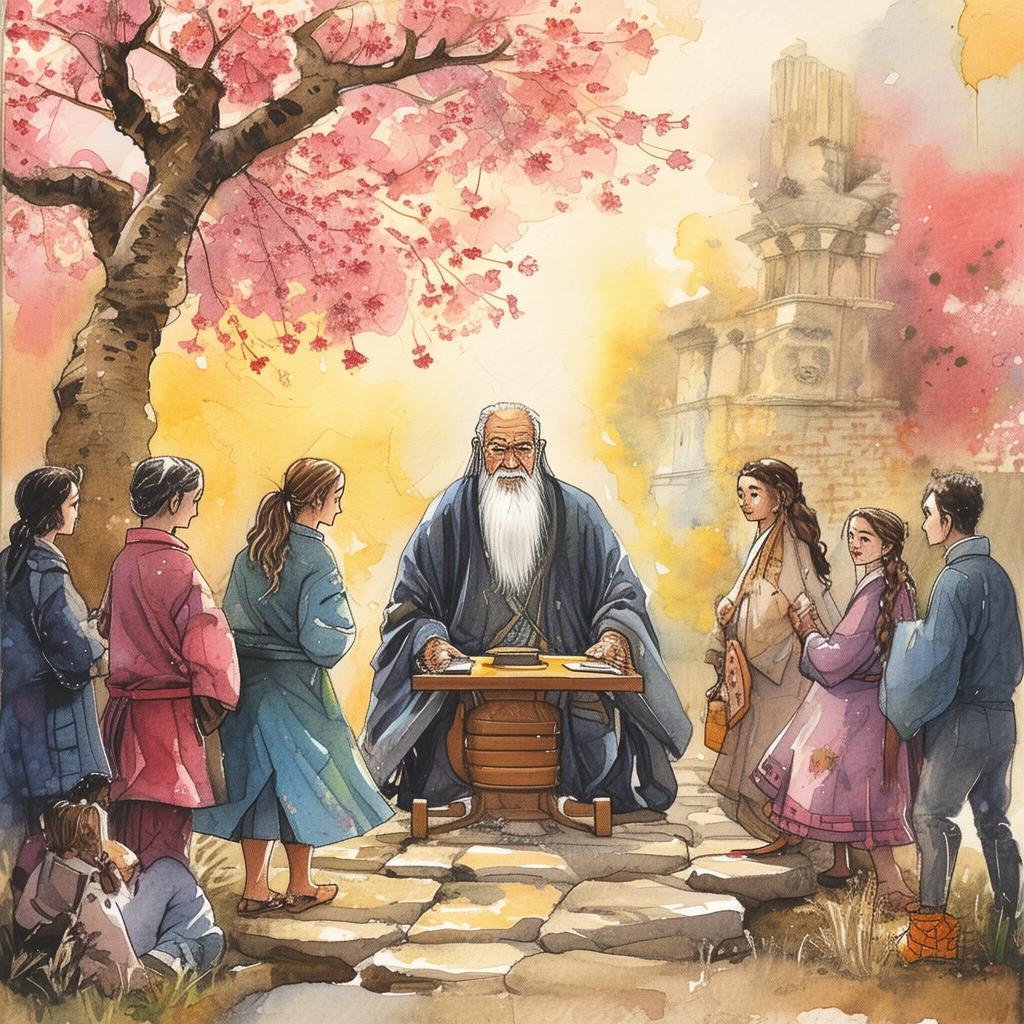Breaking the Melody: The Bard's Rebellion
In the ancient kingdom of Liang, music was more than mere entertainment; it was a force that could sway the hearts and minds of the populace. The royal court was home to a select few who were granted the privilege to compose and perform the songs that dictated the nation's morale. Among these elite was Lü Qing, a bard of unparalleled talent, whose voice was as sweet as the honey of the springtime.
Yet, Lü Qing was no ordinary bard. His soul was bound to a melody of compliance, a haunting tune that echoed through his veins and compelled him to sing only the songs of the oppressors. The melody was a chains of compliance, a spell woven by the royal sorcerers to ensure that the people remained docile and loyal to the throne.
Lü Qing's life was a constant struggle between his love for music and his dread of the melody that confined him. He would often sit by himself, in the quiet of the night, strumming his lute and imagining the freedom of a song that was his own. But every time he began to compose, the melody of compliance would seize him, and he would be forced to sing the praises of the king and his cronies.
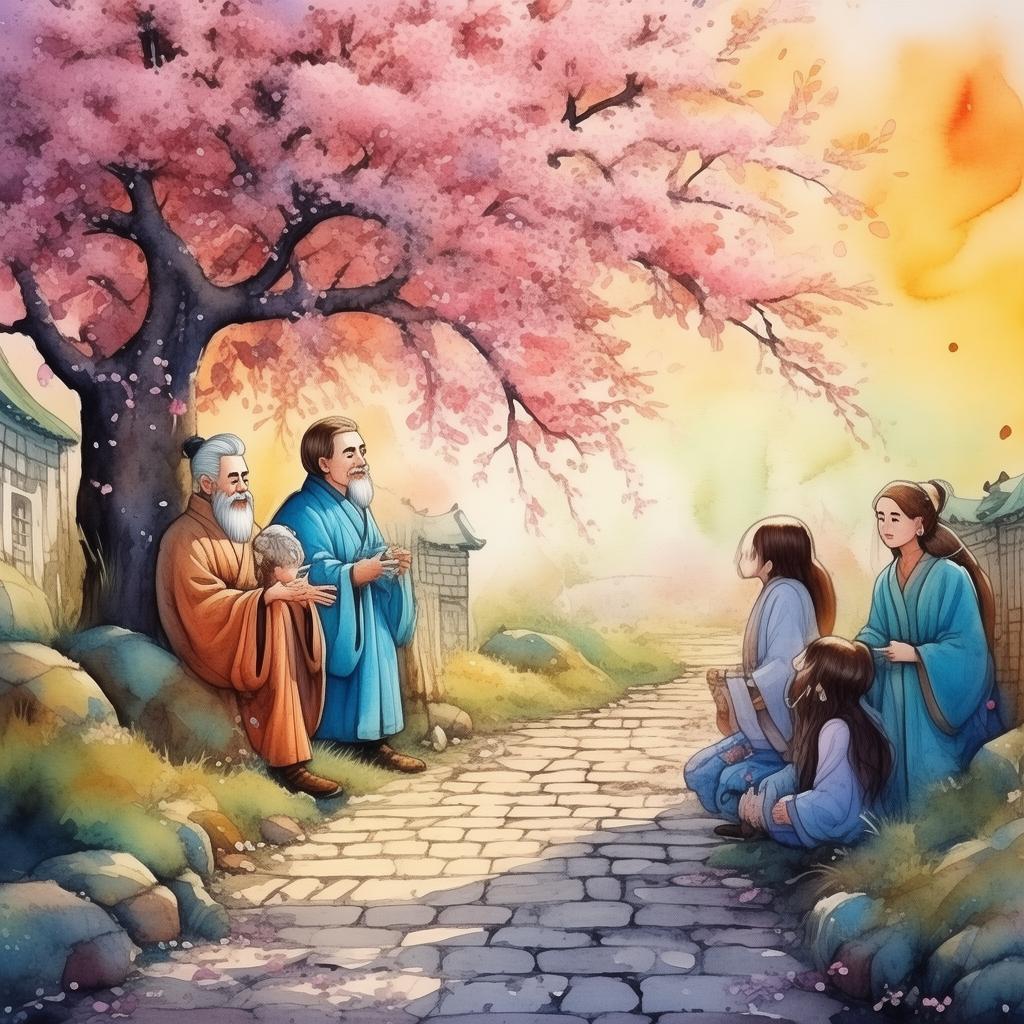
One day, as Lü Qing performed at the royal court, he felt a strange sensation. It was as if a new melody had been born within him, a melody that spoke of freedom, of love, and of the suffering of the people. His heart raced as he tried to suppress it, but the melody was too strong. It surged through his veins, and he found himself singing a song of rebellion.
The court was shocked into silence. The king's face turned pale, and his advisors looked on in horror. Lü Qing's voice, once so sweet, now carried the weight of defiance and hope. The people, who had been long oppressed, found themselves moved by the song, their hearts swelling with a newfound courage.
The king's anger was fierce. He ordered Lü Qing to be taken away, to be punished for his rebellion. But the people, emboldened by the bard's courage, rose up in protest. They demanded the release of Lü Qing and the chance to hear his true voice.
The rebellion spread like wildfire, and soon the entire kingdom was in an uproar. The king, realizing the power of music and the spirit of his people, was forced to release Lü Qing and allow him to sing freely.
Lü Qing's song of rebellion became an anthem for the oppressed, a reminder that even the most constrained soul could find the strength to break free. The melody of compliance was broken, and in its place, a new melody of freedom was born.
The kingdom of Liang was never the same. The people, inspired by the bard's courage, began to demand change. The chains of compliance were cast aside, and the kingdom was transformed into a land where the people's voices were heard and their rights were respected.
Lü Qing's legend grew, and he was hailed as the Enslaved Bard, the man who had the power to change the world with a single melody. His story became a testament to the power of music, of the human spirit, and of the indomitable will to break free from the chains that bind us.
As the years passed, the kingdom of Liang thrived, and the song of the Enslaved Bard continued to resonate through the land. And though the melody of compliance may have been broken, its echoes remained, a reminder that the fight for freedom is an eternal battle, one that must be fought by the brave and the strong-willed.
✨ Original Statement ✨
All articles published on this website (including but not limited to text, images, videos, and other content) are original or authorized for reposting and are protected by relevant laws. Without the explicit written permission of this website, no individual or organization may copy, modify, repost, or use the content for commercial purposes.
If you need to quote or cooperate, please contact this site for authorization. We reserve the right to pursue legal responsibility for any unauthorized use.
Hereby declared.
